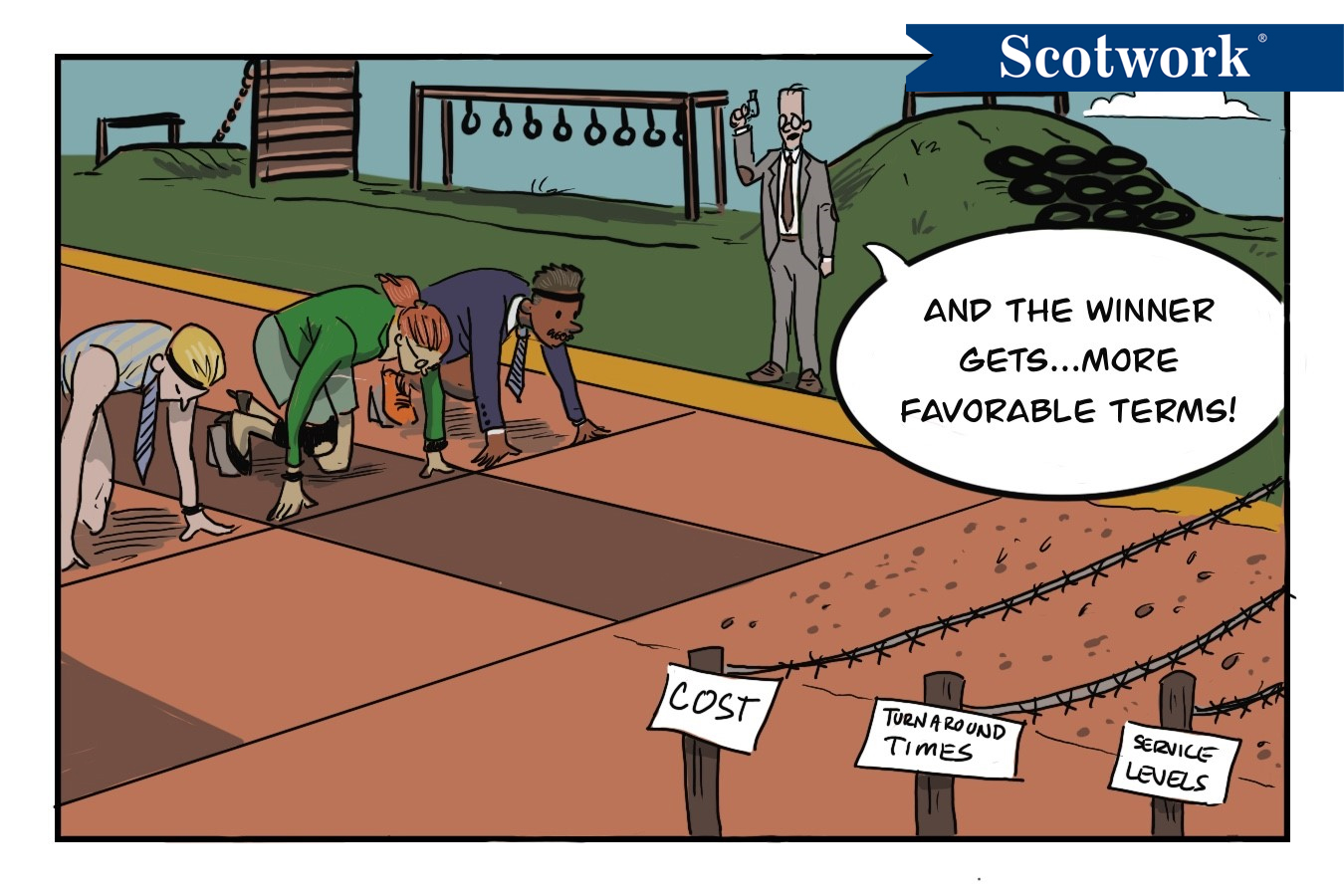This post is the second of our Negotiation Resolutions series.
As we start the New Year, we’ve been exploring the various Negotiation Resolutions our community has submitted. These are all topics they want to negotiate better. Last week, we discussed personal value. This week, we’ll discuss negotiating better commercial terms.
People let us know, loud and clear, that they care about negotiating:
- Change in price (up or down)
- Value of a deal
- Cost
- Turnaround times
- Timelines
- Deliverables
- Service-level agreements
- Contract language
- Risk
And that’s not all. We could probably spend a day talking about each item, but I suspect I’d probably lose most of you if I did that! So, let’s talk about the most common obstacles we face when negotiating better commercial terms.
The first obstacle is actually understanding what we want. Believe it or not, only 38% of negotiators surveyed can identify the benefits of their negotiated outcomes. At Scotwork, we study trillions of dollars of commerce a year, and based on our global negotiation capabilities assessment, that shortfall is tied to people not clearly defining what they want at the outset of negotiations.
Most people have a general idea of what they want, but it usually sounds something like “a better price” or “faster delivery.” While these are fine objectives, the trouble is they’re not specific enough. When a negotiator hasn’t made their own goals specific enough, they’re vulnerable to pressure and at risk of agreeing to a bad deal.
To protect yourself, define what you want as specifically as possible. If it’s a better price, what does that mean, down to the dollar and cents? Also, understand the lowest amount you would accept. Again, be specific. This will help you understand your bargaining range for every issue you intend to negotiate. Without it, you run the risk of not being able to identify, let alone attain, the value you negotiate.
The next obstacle is confusing your objectives with your strategy. Your objectives are your desired results. Your strategy is how you plan to achieve your objectives. Your objectives trump your strategy: If you achieved your objectives, do you really care how you got there? No, you don’t — assuming, of course, it was done ethically and legally!
Now, here’s what people tend to miss about strategy: Most negotiators fail to have multiple strategies. For instance, let’s assume you want to achieve a 15% reduction in your current price from your vendor. Your strategy is to offer them more volume in exchange for the price reduction. That is one of the most common and logical trades. But what happens if volume is not the cost driver for your vendor? If you have only one strategy, you’re stuck. Negotiators lose value or waste time defending a failed strategy when they get stuck. Those who can pivot to a new strategy are more likely to achieve their objectives.
Lastly, negotiating more favorable commercial terms is rooted in one’s ability to understand the other side’s priorities and the value they place on them. With that understanding, you can value concessions in a manner that’s meaningful to the other side. Too often, we value concessions based on what they cost us — not by the other side’s priorities.
Understanding their priorities enables you to more easily trade items that matter less to you for items that matter more. Assessing what the other side values comes down to research, curiosity, and asking questions.
Negotiating better commercial terms relies on knowing what you want, having multiple strategies, and understanding what the other side values. Make those discoveries, and you’ll always be able to identify the benefit of your negotiated outcomes.
Good luck with your negotiation resolutions and let us know how they’re going!
We Can Help You Get Better Commercial Terms.
When you want the best possible terms, it’s critical to know what you want, have multiple strategies, and clearly understand the other side’s priorities. We can help! Draw on Scotwork experts’ nearly 50 years of real-world experience to get more of what you want on the best possible terms.

